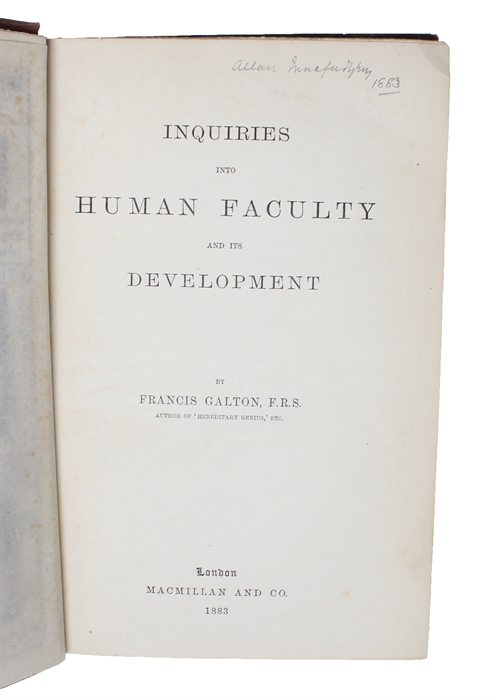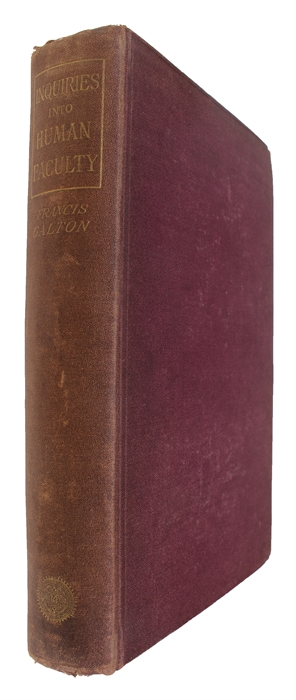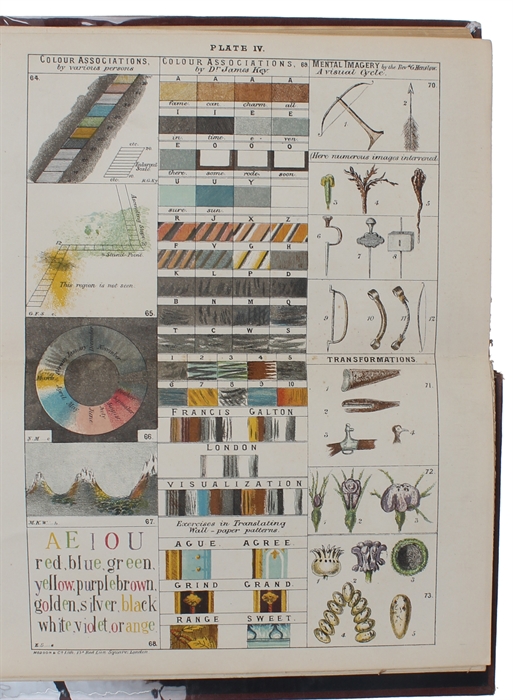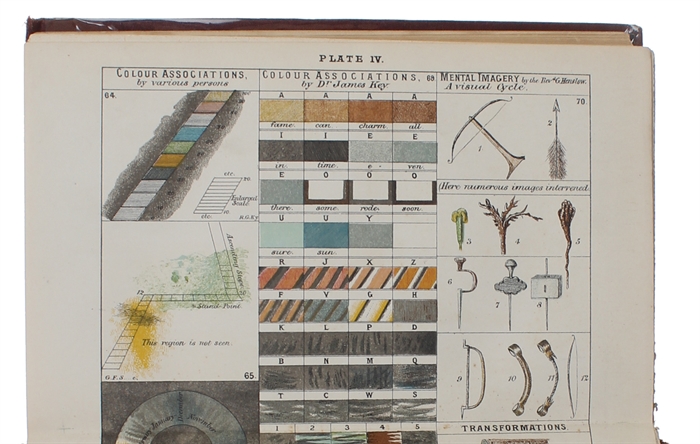COINING "EUGENICS"
GALTON, FRANCIS.
Inquiries into Human Faculty and its Development.
London, 1883.
8vo. Original full red cloth with gilt lettering to spine. Spine faded and wear to corners and capitals. Inner hinges weak. Internally very fine and clean. Photographic frontispiece ("Specimens of composite portraiture personal and family"). XII, (2), 387 pp., including the four plates, one of which is double-page, illustrated, and coloured.
First edition - in the original full cloth - of this milestone in modern supremacy theory and thought. This work constitutes the magnum opus of eugenics, and it is here that Galton, Darwin's cousin, coined the word "eugenics" and initiated the eugenics movement:
"[This book's] intention is to touch on various topics more or less connected with that of the cultivation of race, or, as we might call it, with "eugeni" questions, and to present the results of several of my own separate investigations.
This is, with questions bearing on what is termed in Greek, eugenes, namely, good in stock, hereditarily endowed with noble qualities. This, and the allied words, eugeneia, etc., are equally applicable to men, brutes, and plants. We greatly want a brief word to express the science of improving stock, which is by no means confined to questions of judicious mating, but which, especially in the case of man, takes cognisance of all influences that tend in however remote a degree to give the more suitable races or strains of blood a better chance of prevailing speedily over the less suitable than they otherwise would have had. The word eugenics would sufficiently express the idea" (p. 24) .
Galton was a true polymath and pioneer in several fields. Having been engaged exploration, travel writing, geography, and meteorology, he chose a different path after having "Origin of Species" by his cousin Charles Darwin. The book convinced Galton that humanity could be improved through selective breeding. He delved into anthropometrics and psychology and became a pioneer in the fields of fingerprinting, biometrics, etc., and he ended up constructing his own theory of inheritance in which nature and not nurture played the leading role. He actively began promoting eugenics and soon gained important converts.
Eugenics was very popular in America during much of the first half of the twentieth century, but is now primarily associated with Nazism and Hitler' vile attempts at creating a superior Aryan race.
Modern eugenics, more often called human genetic engineering, is very far from the Nazi version of it, but remains controversial.
G&M: 230
Order-nr.: 56418




